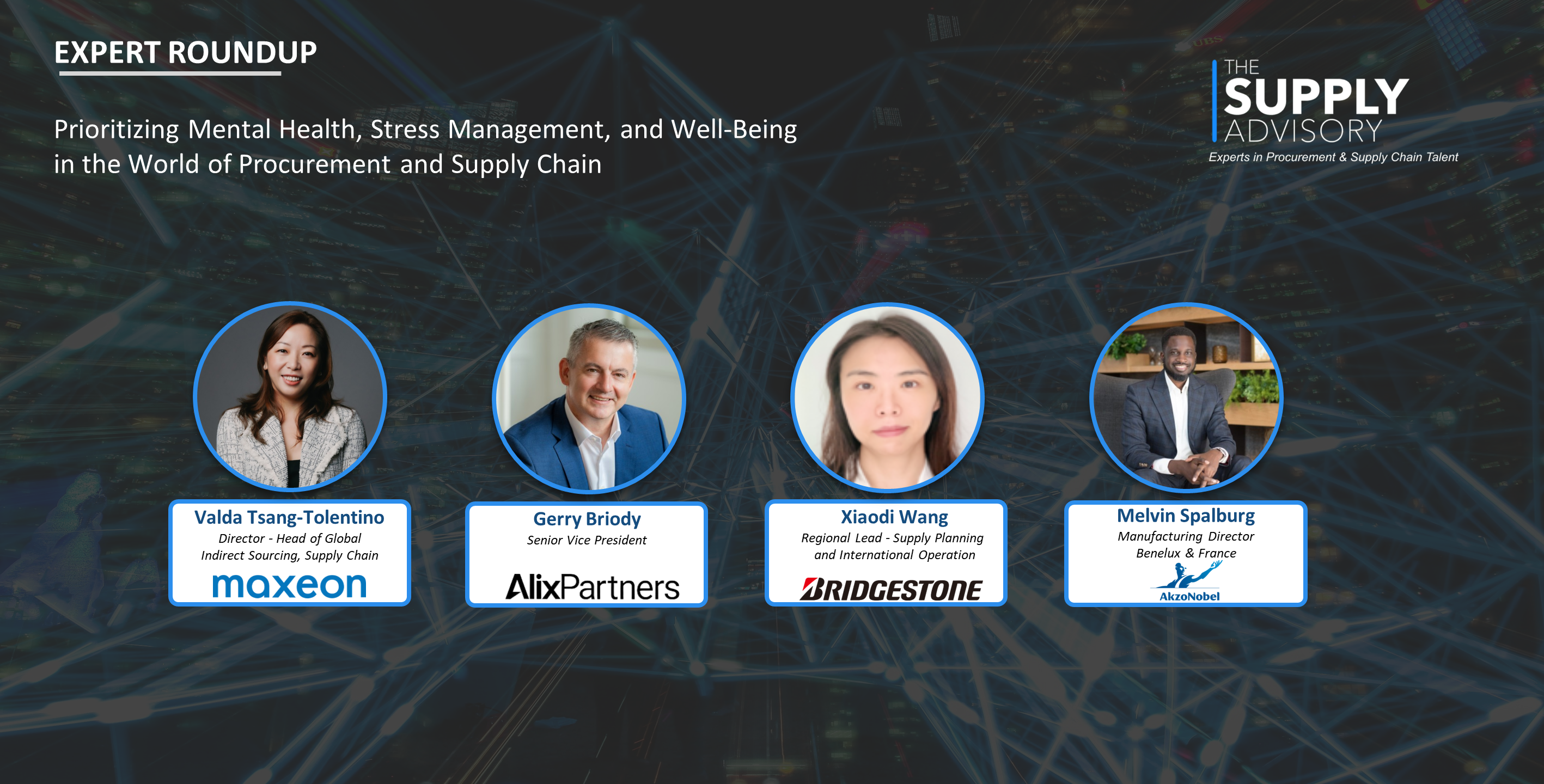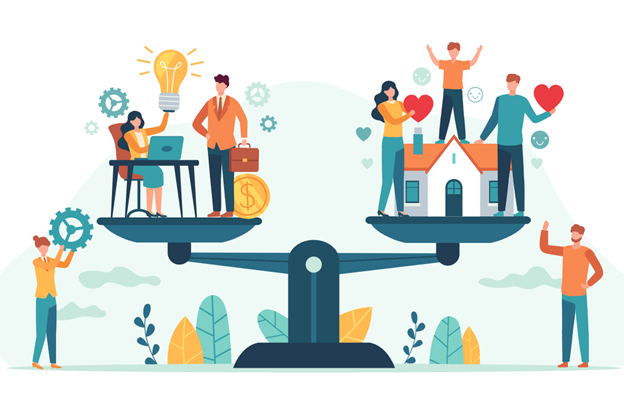
A few years back, I was recruiting for a Regional Supply Chain Manager role to be based in one of the ASEAN countries. It was a retainer search covering five countries and went perfectly well. The candidate of choice was a highflyer, well-traveled, ambitious, and switched-on individual who was all geared to venture into the next phase of their career. The hiring manager even flew down from Singapore and had the welcome dinner with the candidate over the weekend before their joining date.
However, that Monday, the joining date, I received a shocker! The HR called to inform me that the candidate hadn’t shown up. In my many years of recruitment career, I’ve had highs and lows but a candidate not showing up wasn’t a part of that list. After being unreachable on every platform for many days, when I finally got hold of the person, what I learnt was heartbreaking. It was a case of acute depression. The individual had subconsciously spiraled down that route during the handover period as they couldn’t handle the work pressure.

That day, I learnt that mental health problems were very real and could affect anyone who we might otherwise think is coping perfectly well.
When we founded The Supply Advisory, we consciously embedded “Wellness” as one of our DNAs and don’t shy away from talking about it with our clients, candidates, and employees. So, when Valda Tsang-Tolentino proposed this particular topic for the roundup, I immediately concurred as it is a subject very close to my heart.
In the fast-paced world of procurement and supply chain, professionals are constantly faced with technical complexities and geopolitical challenges. From ensuring efficient operations to navigating global markets, these experts play a critical role in driving organizational success. However, amidst the hustle and bustle of the supply chain industry, it is essential not to overlook the well-being of the individuals behind it.

The Human Element: While supply chain operations often involve intricate systems and strategic decision-making, it is crucial to recognize that every process ultimately involves human beings. Employees’ well-being directly affects their ability to perform at their best and contribute effectively to the organization’s goals. As the accelerated adoption of remote work brought about new challenges, the new-normal ways of working blurred the boundaries between personal and professional lives, and employees experiencing high levels of stress and burnout became more pronounced. The organizations which have acknowledged this area and equipped themselves and their Leaders to address the overall well-being of their workforce are not just doing right by their employees but are also ensuring potentially higher operational efficiencies for their company.
In this edition of expert roundup, we reached out to eminent Supply Chain and Procurement Leaders and asked them “Procurement and SC professionals are continuing to be stretched on 24/7, always On basis. What are the Top 3 initiatives that you have taken to tackle challenges around mental health, stress management and wellbeing for your function and how has it benefited?”

Valda Tsang-Tolentino
Director – Head of Global Indirect Sourcing, Supply Chain
Maxeon Solar Technologies
Practice Self-care
This looks different for every person, and the needed amount can vary. It is not a luxury but a necessity, so don’t be apologetic for it.
For me I try to take what I can, irrespective of duration – whether that is a mini-holiday, blocking out time in diary, exercise or a coffee. Self-care is also critical for me to have the capacity to be the best that I can be during family time. As a leader it is also important to explain to your team your boundaries (such as where you are on leave, if you are reachable and in what formats) so there is clarity, to respect everyone’s time and efforts in our absence. Moreover role-modelling this will set mutual expectations to ensure everyone works together to support the self-care all team members’ needs.
Protect your time and energy
There is often unproductive chatter that surface everyday which are just the by-product of corporations, structures and people. Recognise that irrespective of best efforts, sometimes things may simply not work out. Taking a helicopter view helps me to gain perspective, minimize frustration and ensure efforts are not expended in areas that are not worth it. Where possible I also try to share my perspectives with the team without imposing my views, so they have context and can form their own coping strategies when faced with challenges.
Create routines but be prepared to adjust
Go-to routines is powerful for mental health and wellbeing when accumulated over time. For me it is yoga, meditation, walks, coffee and podcasts. When you do need to adjust, don’t beat yourself up, re-commit and start over. “Every action you take is a vote for the type of person you wish to become” – James Clear, Atomic Habits.
I am also mindful to encourage my team to make the most of their hobbies and time off. There is never a perceived good time for pursuing interests outside of work or taking time off especially when both business-as-usual and transformation is all consuming. There is always time for breaks (think of all those SG long weekends!) and cultivating other parts of our brain. Bright ideas can spark when it is least expected and should not be seen as “wasted time”. Time off taking with intention and deliberate hobbies can spurn creativity and improve productivity for both you & your teams.

Gerry Briody
Senior Vice President
AlixPartners
LifeWorks Global EAP (Employee Assistance Program)
We’ve got a great program in place to help our employees tackle any mental health challenges. It’s a confidential support service that offers expert assistance and counseling 24/7. Whenever our team members need help dealing with work or home-life issues, they can reach out for short-term, solutions-focused counseling. It’s been a game-changer for promoting better work-life balance and helping our people manage stress wherever they might encounter it.
AlixPartners Employee Resource Groups (ERGs)
We’re all about inclusivity and support in our business, and that’s where our Employee Resource Groups come into play. These are voluntary-membership groups led by our amazing employees that create an inclusive environment and promote professional and personal growth. We’ve got over 60% of our team engaged with at least one group! Through ERGs, our people have access to mentorship networks, peer coaching, and even the opportunity to build relationships with external partners. Plus, they’ve become a platform for important conversations and ideas within our company.
Well at Work Programs
Taking care of our team’s well-being is a top priority, so we’ve put together a series of fantastic “Well at Work” programs. These cover everything from physical and emotional health to financial support. Our people get access to health and welfare benefits like medical coverage, dental and vision plans, and even telemedicine options. We’ve also beefed up our mental health coverage and offer flexible work arrangements.
With the LifeWorks EAP, ERGs, and our well-being programs in place, our people are in a more supportive and positive place mentally. They’re handling stress better and feeling good overall.

Xiaodi Wang
Regional Lead – Supply Planning and International Operation
Bridgestone Asia Pacific
Streamlining and Simplification of working flows
Supply Chain in MNCs usually struggle with the dilemma that on one hand we need to make quick decision to cope with market change but on the other hand we need to follow numerous internal processes either to seek alignment or approval, especially when it involves different functions and layers of organization. We have focused on simplifying working flows by identification of areas where unnecessary alignment points could be eliminated, or processes could be simplified. By implementing these simplified workflows, we have not only increased operational efficiency but also reduced stress levels for our employees to prepare materials or meetings for alignment.
Application of digitalization tools to reduce stress of reporting
We have also embraced digitalization tools to drive more efficient data analysis and automated processes. By adopting advanced tools and technologies, we have automated data analysis, reporting, and routine tasks. This has significantly reduced the manual workload for our professionals, allowing them to focus on strategic decision-making and high-value activities. The application of digitalization tools has not only enhanced operational efficiency but also improved accuracy and minimized errors. They can now leverage these tools to work more effectively and achieve better outcomes in their roles.
Flexible Work Arrangements
Recognizing the need for work-life balance and reducing burnout, the company has introduced flexible work arrangements. This initiative allows the team to have more control over their schedules, offering options such as flexible hours and remote work. By providing this flexibility, we have empowered our employees to manage their work commitments while taking care of their personal responsibilities and prioritizing self-care. It enables the team to spend more quality time with the family and not feel burnt out whenever they need to meet the task deadlines.

Melvin Spalburg
Manufacturing Director Benelux & France
AkzoNobel
Over the past 3 years we have all learned how vital smooth operating Supply Chains are for our daily essentials. Whether this is for food, medicine or the microchips which are used in the equipment we interact with. Working in Supply Chain or Operations demands strong resilience, perseverance, and creativity to find solutions to new problems.
Over the past year we have engaged our workforce much more pro-actively to find out what their needs are. The Recharge workshops — mental health – and the Vitality Program — physical health – have been a result of that and were successful for our shopfloor colleagues to provide them these tools. As well as doing a brief formal check-in prior to starting our meetings, from shopfloor right up to senior executive levels.
But how do you keep the resilience up and how to persevere? There is no one size fits all solution to managing one’s stress levels or mental well-being. What works for me won’t do the trick for someone else, so as a Supply Chain leaders we need to constantly look for ways to keep our professionals healthy; both physically as well as mentally. People need the tools which they can deploy themselves in ways that will work for them personally.

The conclusions drawn from the insights gathered highlight the significance of streamlining workflows, adopting digital tools, implementing flexible work, supporting mental health through EAPs and ERGs, prioritizing employee well-being, practicing self-care, and engaging the workforce. These initiatives contribute to enhancing operational efficiency, reducing stress levels, promoting work-life balance, and creating a positive and supportive work environment.
Hence, it is crucial to remember the human element and prioritize the well-being of professionals. By investing in mental health and overall well-being, organizations can create a productive environment. Adaptive strategies and support systems are needed to address unique challenges. Employee Assistance Programs provide a valuable resource to support individuals in managing their well-being. Let us embrace a holistic approach that recognizes the significance of mental health and well-being for the success of procurement and supply chain professionals, fostering a healthier and more productive workforce. Learn more at The Supply Advisory!

Ananya Sinha Roy is the Director at The Supply Advisory, a leading executive recruitment firm specialising in Procurement & Supply Chain.
You can view the The Supply Advisory website or contact them directly at info@supplyadvisory.com for a more detailed discussion.